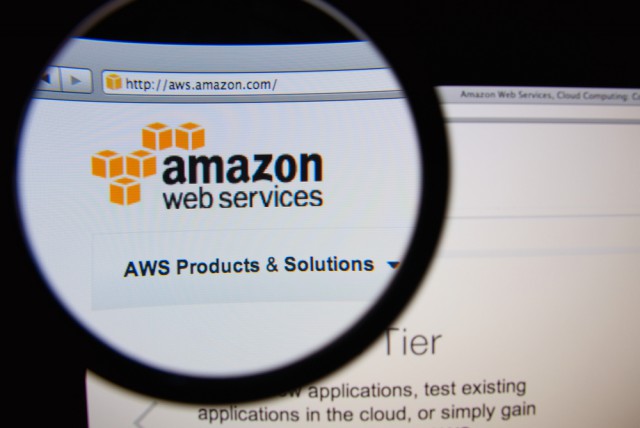
AWS more popular than Microsoft, Google and IBM's clouds combined
Amazon Web Services is the undisputed leader in the public cloud market, with a market share larger than the next three competitors -- Microsoft, Google and IBM -- combined, according to a new report from Synergy Research Group.
In Q3 2016, AWS had a share of around 45 percent in the public IaaS (infrastructure as a service) market, while Microsoft's Azure, Google's Cloud and IBM's cloud did not even get past the 20 percent mark.

Google discloses actively exploited Windows vulnerability before Microsoft patch is ready
Google has shared details of a 0-day vulnerability in Windows a mere 10 days after informing Microsoft of the problem. In Google's own words, "this vulnerability is particularly serious because we know it is being actively exploited", but the company is accused of putting users at risk.
Microsoft is yet to produce a patch for the security problem, and it's not clear when one will be released.

Google now alerts you to early voting for 2016 US election
As the big (or dreaded) day of November 8th draws ever closer, many states have now opened early voting. The process is pretty simple, but we've seen long lines in some locations. It's an interesting approach, given that new stories and revelations hit the news cycle on an almost daily basis.
Not every state has early voting available, and it opens on various days depending on your location. So how do you find out when and where to head to the polls?

Today's ghostly Google doodle is a Harry Potter-inspired Halloween game
It's that time of year again when the pumpkins are glowing, the kids are out trick or treating, and things start to go bump in the night. To celebrate Halloween 2016, Google has launched a new game as today's doodle.
You're invited to go ghostbusting. You must help your feline companion to defeat ghouls and ghost with a little spellcasting -- with a doodly twist, of course.

Is Apple Halloween 2016 Trick or Treat?
That's the question to ask if you're considering ordering the new MacBook Pro unveiled last week or wondering whether or not to cancel an already placed purchase before it ships. For fervent fanboys who drink Apple Kool-Aid like water, "treat" can be the only answer. But for the thinking public, the response depends on several factors, such as budget and whether or not buyers believe that the fruit-logo company advocates a rational design ethic.
Let's start with the latter. Apple is finger-obsessed and has been since before the first Mac shipped, as I explained in March 2010 post: "What 1984 Macintosh marketing reveals about iPad". The company lags behind Google getting to the next user interface, which is more contextual and immediately responsive: Voice, meaning touchless interaction, rather than touch, supported by artificial intelligence. By contrast, Apple isn't ready to abandon the finger-first motif, as Touch Bar makes so obviously apparent.

Google declares war on Microsoft Surface Hub with 'Jamboard' enterprise whiteboard
Businesses can never go wrong choosing Microsoft. Between Windows, SharePoint, and Office, a company should see much success in both productivity and collaboration. One place where Microsoft was pretty much unchallenged in the enterprise was with Surface Hub -- its big-screen collaboration device running the wonderful Windows 10. Today, however, this changes, as Google unveils something of a Surface Hub competitor.
Called "Jamboard", the search-giant's digital whiteboard features a beautiful 55-inch 4K display, HD camera, and integrated speakers. Yeah, it seems very impressive. With that said, Google services like G Suite are unproven in the enterprise; an IT decision-maker would be taking a huge risk by spending company funds on Jamboard. After all, it costs $6,000.
Looking for a case for the new Google Pixel? Incipio has some choices
Google recently released two new flagship Android phones -- the Pixel and Pixel XL.
Designed to be serious iPhone rivals, these handsets represent a large investment and one that any buyer would certainly wish to keep safe. To that end, Incipio is releasing a lineup of cases to keep your Pixel or Pixel XL protected.
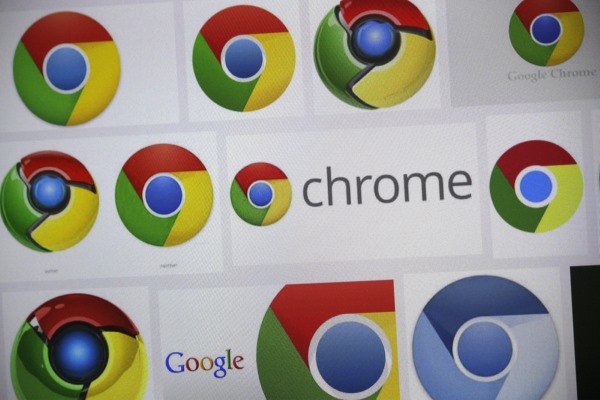
How to disable new tab article suggestions in Chrome 54 for Android
If you've updated Chrome on your Android smartphone to version 54, you may have noticed an annoyance. When you open a new tab, Google has now decided to spam users with "article suggestions". These -- you will be pleased to hear -- can be banished.
There's more than one reason that you might want to get rid of these suggestions, not least of which is that the feature involves Google keeping an eye on the sites you visit to come up with the suggestions. But the feature also replaces the far more useful bookmarks, and this is going to be enough to tip many users over the edge. Here's how to disable article suggestions.
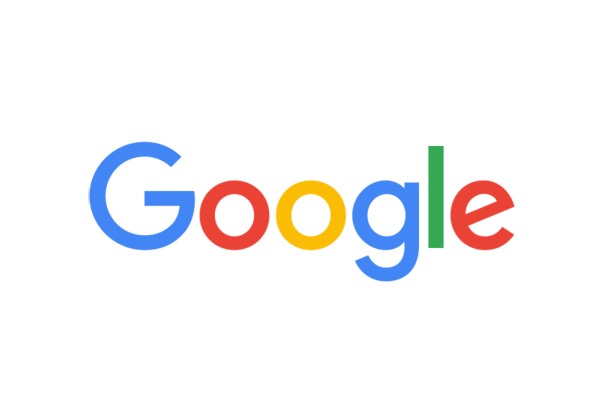
Google's updated privacy policy means personally identifiable ad tracking is now go, go, go!
That Google encroaches on user privacy is not a startling revelation by any stretch of the imagination. But a recent change to the company's Privacy Policy means that information from DoubleClick ads can now be used to identify individuals and track them online.
The changes to the policy have not been hidden -- the details and alterations are visible in an archived copy of the document -- but it has not been advertised either. The implications of the change are huge. Since purchasing DoubleClick back in 2007, Google kept identifiable user data separate from anonymized ad tracking. This is no longer the case.

Chrome's bleeding edge Canary build now available for Android
Google offers a choice of Chrome versions, depending on how close to the cutting edge you want to be. You can choose to run either the stable release, or gain access to additional features by opting to join the beta channel. There’s also Canary, a "bleeding edge" build of Chrome that installs, runs and updates separately from the main browser.
This has previously only been available for Windows or Mac, but it’s now available on Android too.

Google releases open source 'Nomulus' TLD registry platform
Google is one of the biggest champions of open source, releasing very useful projects such as Cartographer and Noto. Heck, the company is so proud of its open source efforts, that it graded itself with a public report card.
Today, the search giant releases yet another open source tool. Called "Nomulus", it is designed to be a top-level domain (TLD) registry platform. This is not a young or incomplete project, however, as Google began developing it way back in 2011. Now that Nomulus is in the wild and free to use, it will be interesting to see how it is leveraged.
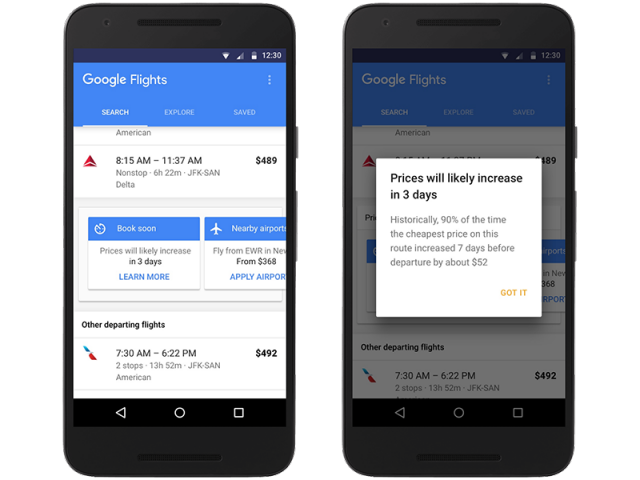
Google can now help you find the cheapest flights
You can save big on plane tickets. The trick, as you know, is to buy them at the right time. And since it may not be easy to foresee, Google Flights has received an update to let you know when is the best time to take out your credit card.
With the holiday season just around the corner, Google says that 69 percent of the US leisure travelers worry about finding the cheapest flights or making the right decision when buying their tickets, so Travel will now inform users when it expects prices to change.
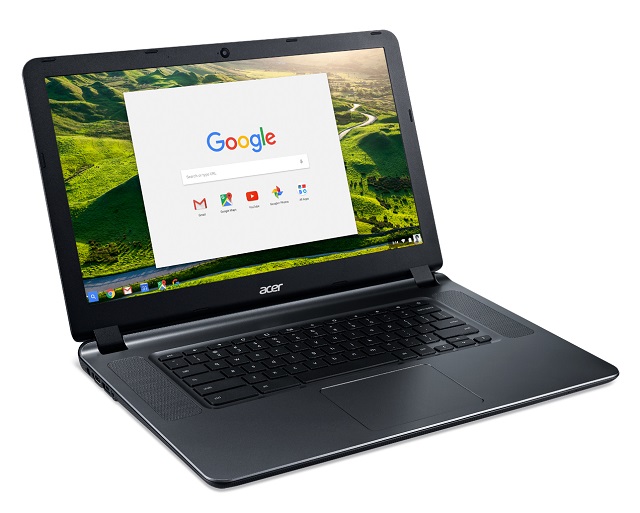
Acer updates Chromebook 15 with 12-hour battery life -- $199 exclusively at Walmart
Chromebooks are not for everyone, but for many home users, it is absolute perfection. If you live in the web browser -- as many people do nowadays -- laptops running Google's Linux-based Chrome OS are a godsend because they are maintenance free. No need for confusing OS upgrades or anti-virus software. It just works, and it works well. Since they can now run Android apps too, they could become a serious threat to Microsoft and Windows 10.
One of the most attractive aspects of Chromebooks is price -- they are often quite affordable. Today, Acer refreshes its 15.6 inch Chromebook 15 with a mind-boggling 12 hours of battery life. Best of all? It starts at $199. Yes, this model will get Android app support in a future update too.

Google will show different search results to mobile and desktop users in the coming months
At the moment it does not matter whether you perform a Google search from your phone or from your computer; you'll see the same results. But in a few months this is set to change. The company is set to launch a new mobile search index that will be more up to date than the desktop index.
The news came at Pubcon, a social media and optimization conference, via Google's trends analyst Gary Illyes. It was an idea that was floated last year, and after a little experimentation, Google is almost ready to launch the new search index.

Google releases Open Source Report Card -- does the company deserve an A+?
The future of computing is open source. While there is still room for closed source software, more and more companies are going the open route. Major players such as Microsoft, Apple, and Facebook are all contributing to the open source community. Google in particular is a huge proponent of open source. Heck, two of the company's operating systems -- Chrome OS and Android -- are Linux distributions.
Today, the search giant announces the 'Open Source Report Card'. This is essentially a report that explains the details of its open source projects. Google is undoubtedly a major open source contributor, but the question is, what grade should the company get?
